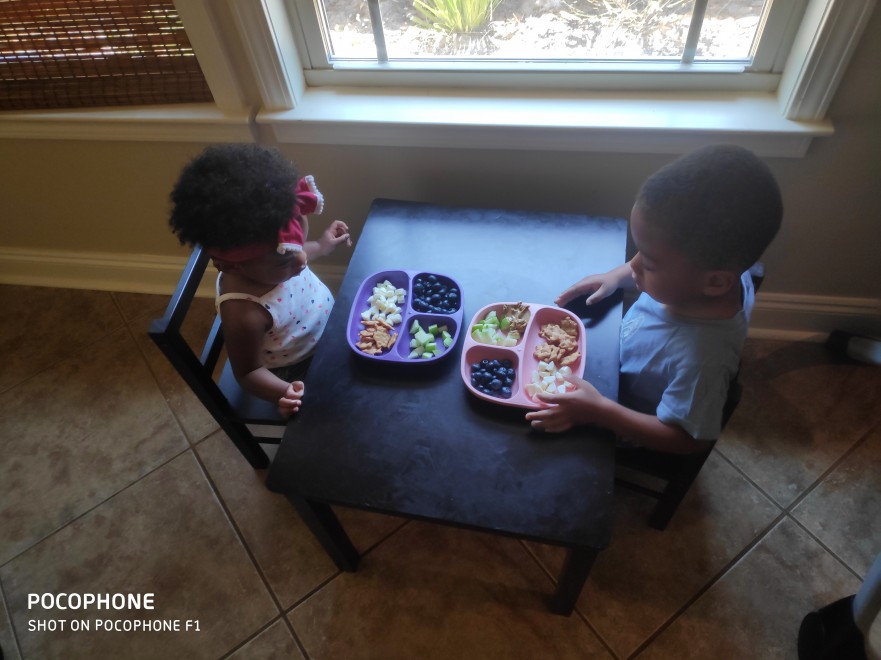In a time of redefining normal, I believe we have simultaneously developed a deeper appreciation for the reality-based social development within the child. As a Montessorian, we hold that social development is the adaptive work of the child. It is the child who must create his own social behavior within the context of his society. To help him along, the child has an internal desire to adapt to the culture he is born into, based on that time and that place. It is through his interactions with his immediate environment that the child absorbs the psychology of his family and culture, and this begins at birth.
Montessori’s First Plane of Development occurs during the ages of 0-6. It is broken into two sub-phases at ages 0-3 and 3-6. The first sub-phase, ages 0-3, is the time of the unconscious Absorbent Mind when the child takes all things in without prejudice or discrimination. The social development of the child is in the state of a spiritual embryo seeking to develop into its own personal identity and social self. During this time, his mind and body are developing at a rapid pace both physically and spiritually. The family unit is often his whole world and he is dependent upon it for protection, provision, and a safe place to practice and develop freedom.
During the second sub-phase, ages 3-6, the child moves into a state of consciousness. He is still in a time of creation, but more stable and able to correct some negative experiences that he may have had during 0-3. During this time, he solidifies and stabilizes what he has absorbed, and his Absorbent Mind becomes a conscious learning tool. He wants to do things and realizes he knows things. He becomes conscious of himself, his actions, and his learning. His experiences influence his behavior and learning by actively doing. Direct interaction is one of the fastest and most effective ways to acquire knowledge. These experiences provide him with background knowledge that he can use for future situations and applications.
As a social being, he also develops his conscious will. This means he begins to overcome acting on impulse, which allows him to use his will to do things correctly, do the things his culture sees as “right” and choose self-control. This translates to self-discipline. It manifests in his social choices and in his work, which becomes precise as he wills himself to do things with precise movement, perfection, and accuracy. By the end of this phase, Montessori holds that the child will have developed within himself what will become his personality. Although acquired with ease during this First Plane, any personality changes after this will be difficult.
Montessori developed a responsive learning environment specially designed to support the natural development of the child. This includes his social development. Check back soon to learn more about this special place that Montessorians refer to as The Casa and the social development of the older child.
If you would like to learn more about the Montessori Method, check out the following resources:
Website:
Association Montessori International (AMI)
Video Link:
Books:
A comprehensive listing of influential books written by Dr. Montessori’s are identified in the article The 24 Best Montessori Bookds for Parents and Teachers.









